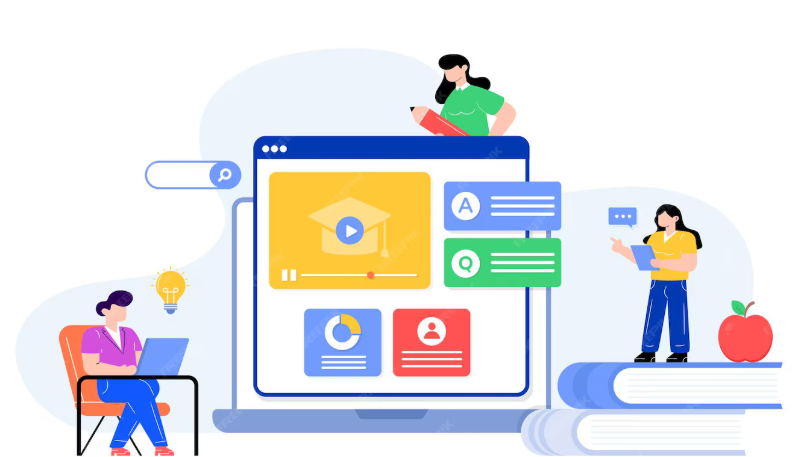It can be exciting and rewarding to build and run an online course, but let’s be honest—it can also be exhausting. Course creators often take on various roles, including educator, marketer, designer, community manager, and even tech support. Though the hustle can yield rewards, it carries a risk that many creators encounter but seldom discuss: burnout. If you find yourself working late all the time, managing an unending list of tasks, or having difficulty finding motivation, know that you are not alone. The positive aspect? By implementing effective self-care tactics, you can maintain your creativity, energy, and passion while ensuring your well-being is not compromised.
Set Clear Work Boundaries
It’s easy to confuse work and rest when your laptop serves as both your classroom and office. Establish defined “working hours” for course-related tasks and adhere to them. At the end of the day, close your laptop (and avoid making lesson adjustments late at night) to help your mind refresh. Consider boundaries as an unseen fence that safeguards your time and energy. It involves not only completing work by a certain time but also conveying those limits to others. Inform your users and collaborators about your availability. This alleviates pressure, aids in maintaining consistency, and stops your personal life from being overtaken by a never-ending list of “just one more thing” tasks.
Prioritize Rest and Recovery
Sleep is not a luxury; it’s essential fuel. Course creators frequently undervalue the amount of cognitive effort involved in lesson design, video editing, and user interaction. To restore your concentration, it can help to maintain a consistent sleep routine, take short breaks throughout the day, and do a weekly digital detox. Recovery also entails paying attention to your body and mind. If you’re feeling sluggish or blocked creatively, trying to force it won’t make a difference. At times, the most effective action you can take is to take a break for a walk, engage in meditation, or just give yourself some rest. This isn’t about being lazy; it’s a reset that helps you be sharper when you get back to your work.
Practice the “One-Thing Rule”
Though multitasking seems to yield much work, it quickly saps your energy. Rather, pledge to accomplish one significant task at once. Whether it’s about recording a lesson, crafting copy, or replying to users, completing one task before transitioning to another minimizes stress and boosts efficiency. The “one-thing” strategy also generates momentum. Every task you complete provides a feeling of achievement that drives your motivation for the next one. In contrast, managing several tasks that are only partially completed can result in feelings of disorganization and lack of productivity. When we focus, we gain clarity; and clarity is a powerful remedy for feeling overwhelmed.
Delegate and Automate
You don’t need to handle everything on your own. Tools for automating emails, hosting courses, or scheduling can save you several hours every week. If feasible, delegate repetitive tasks such as video editing, captioning, or graphic design to others. Consider it from this perspective: liberating your time is a way to invest in your creativity. Delegation serves not only to save time, but also to show that you value your energy. Each hour you dedicate to administrative duties is an hour that could be spent developing new lessons, interacting with users, or generating innovative ideas. When you release responsibilities that exhaust you, you make room for the unique contributions only you can make: teaching and inspiring.
Nurture Your Creative Side (Outside Courses)
Your identity encompasses more than just course creation. Engage in pastimes, enjoy the outdoors, read books, or take part in pursuits that you find pleasurable. Engaging in non-work-related activities can help to refresh your perspective and even generate new teaching ideas. Many course creators discover that their best ideas come during times when they are not working. Engaging in a painting session, starting a new book, or going for a weekend hike can change your mindset and provide you with new perspectives on your content. Engaging in creative “cross-training” keeps your mind adaptable, which helps avoid the narrow focus that can contribute to burnout.
Connect with Other Course Creators
Experiencing burnout can give one the impression of being isolated. By joining online communities or mastermind groups, you can share your challenges, swap solutions, and seek encouragement. At times, just understanding that others share the same journey can ease the emotional burden. Working together also paves the way for fresh possibilities, such as guest workshops, co-developed content, or collaborative marketing approaches. Of greater significance is the fact that having a support system means you aren’t required to find all the answers by yourself. One of the most effective defenses against burnout is emotional support from peers.
Redefine Success Beyond Productivity
Measuring progress based on enrollments, revenue, or content output is straightforward. However, achieving long-term success also relies on health, balance, and fulfillment. Allow yourself to rest without feeling guilty; your users will benefit more from a teacher who is energized than from an unending stream of new content. Transforming your mindset about success can be life-changing. Rather than asking, “What was my production today?” pose the question–“How sustainable is my work method?” With time, this outlook fosters actions that promote your well-being as well as your business interests. Sustainable creators go beyond course creation; they craft legacies.
Burnout need not be an aspect of the course creation journey. You can generate work from a place of energy rather than exhaustion by establishing boundaries, prioritizing rest, and tending to your mental and physical well-being. Keep in mind that you are the most valuable asset of your course, so prioritize your well-being.





